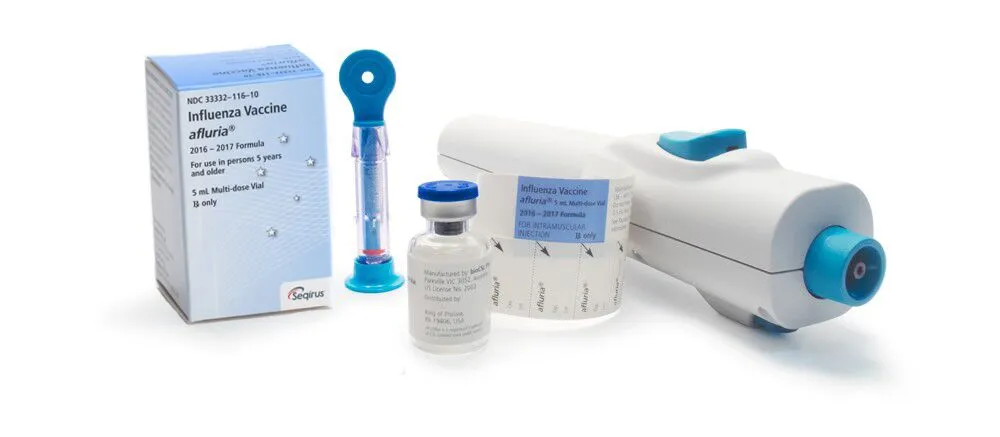
PharmaJet Highlights Partner Data Showing Enhanced Immune Response with Needle-Free Vaccine Delivery
PharmaJet, a medical technology company pioneering innovative approaches to injectable drug delivery, will unveil compelling new data from ongoing DNA cancer vaccine trials utilizing its proprietary needle-free injection systems at the upcoming World Vaccine Congress 2025. The presentation, scheduled for April 23, 2025, at 12:25 PM ET, will center on the critical role of delivery mechanisms in the development and success of cancer immunotherapies.
Titled What if Delivery Is the Missing Link in Cancer Immunotherapy? Insights from DNA Cancer Vaccine Trials Using Needle-Free Injection Delivery, the session will highlight how PharmaJet’s needle-free Precision Delivery Systems™ are improving the immunogenicity and therapeutic outcomes of several DNA-based cancer vaccine candidates. These advances could help unlock a new era of cancer vaccine effectiveness—especially for hard-to-treat cancer types where traditional approaches have shown limited efficacy.
Rethinking the Role of Drug Delivery in Cancer Immunotherapy
While decades of research have brought tremendous progress in cancer immunotherapy, the delivery of therapeutic agents—particularly DNA-based vaccines—has remained a complex challenge. DNA vaccines have shown promise in eliciting specific immune responses, but their uptake and translation into robust immune activity have been hampered by inefficient delivery to target tissues and cells.
PharmaJet’s needle-free systems seek to address this very challenge. Unlike traditional needle-and-syringe methods, which often result in suboptimal tissue targeting and patient compliance issues, PharmaJet’s devices use a high-speed fluid stream to propel vaccines into the skin or muscle with precision and consistency. This technique not only reduces pain and needle anxiety but also improves the uptake of nucleic acid-based therapies, thereby enhancing the resulting immune response.
“For years, the industry has largely focused on antigen design, adjuvants, and immune checkpoint inhibitors,” said Nathalie Landry, Chief Scientific Officer at PharmaJet. “But delivery is an equally crucial piece of the puzzle—especially for DNA vaccines. Our body of clinical and preclinical data is beginning to demonstrate that effective delivery isn’t just a supportive role—it may be the key enabler of success for cancer immunotherapies.”
Insights from Multiple Cancer Vaccine Collaborations
At the upcoming presentation, PharmaJet will reveal data from multiple clinical collaborations with partners developing DNA-based cancer vaccines. These partnerships span a variety of cancer types, including those considered difficult to treat due to tumor heterogeneity, immunosuppressive microenvironments, or resistance to conventional therapies.
Preliminary findings across these studies show that the use of PharmaJet’s needle-free technology leads to increased uptake of the DNA vaccine at the injection site, more efficient translation of the encoded antigen, and significantly improved induction of T cell-mediated immune responses. Some trials have also reported notable tumor or lesion regression in treated patients—suggesting that the improved delivery method may be translating into real clinical benefits.
Among the results that will be discussed are:
- Robust CD8+ T cell activation, a key marker of cytotoxic immune response required for tumor cell destruction.
- Increased antigen-specific IFN-γ production, a cytokine known to mediate anti-tumor activity.
- Clinical observations of lesion shrinkage, particularly in cancers that had previously shown minimal response to systemic treatments.
- Enhanced immune memory, pointing to the potential for long-term tumor control or recurrence prevention.
While the specific vaccine candidates and trial phases remain confidential due to ongoing development and regulatory processes, Landry noted that these findings are consistent across multiple cancer types and partner platforms—strengthening the case that delivery is not a peripheral concern, but a primary determinant of immunotherapy success.
Precision Delivery Systems™: A Platform Built for Modern Therapies

PharmaJet’s technology portfolio includes two primary needle-free delivery systems: the Stratis® for intramuscular injections and the Tropis® for intradermal delivery. Both platforms are FDA 510(k)-cleared, CE Marked, and WHO-prequalified, making them suitable for both clinical and commercial use globally.
These systems are designed to deliver liquid formulations—including DNA and RNA vaccines, monoclonal antibodies, and gene therapies—without the use of needles. The high-velocity fluid stream penetrates the skin and disperses the vaccine at a controlled depth, ensuring more consistent uptake by immune cells and reducing degradation or loss of the therapeutic payload.
According to PharmaJet, this physical method of delivery offers several advantages over traditional approaches and even over emerging electroporation methods, which can be painful and technically demanding. The needle-free systems can be rapidly deployed, are easy to train on, and reduce the risk of needle-stick injuries and cross-contamination—factors that are particularly important in resource-limited or high-volume healthcare settings.
Moreover, the systems are versatile, allowing vaccine developers to explore multiple routes of administration (e.g., intramuscular vs. intradermal) to optimize immune responses for specific indications.
Enabling the Future of Personalized Cancer Vaccines
Cancer vaccines represent one of the most promising yet challenging frontiers in oncology. While checkpoint inhibitors and CAR-T cell therapies have made headlines, DNA-based cancer vaccines offer a more scalable and potentially safer approach to personalized immunotherapy. These vaccines can be tailored to individual tumor antigens, have a favorable safety profile, and offer flexible manufacturing timelines.
However, unlocking their full potential requires that the encoded DNA be efficiently delivered and expressed in the body—precisely where PharmaJet’s needle-free systems come into play.
“Our collaboration model is simple: we empower our partners to develop best-in-class vaccines and therapeutics by eliminating a long-standing barrier in drug delivery,” Landry said. “We see ourselves as a critical enabler in the cancer vaccine landscape, working hand-in-hand with innovators across the industry to turn potential into performance.”
The presentation at World Vaccine Congress 2025 is expected to draw significant attention from immunologists, oncologists, vaccine developers, and global health stakeholders. As the field of cancer immunotherapy continues to evolve, PharmaJet’s contributions to the delivery science behind these therapies may prove to be one of the key differentiators in driving clinical success.
PharmaJet is also exploring additional applications of its technology beyond cancer vaccines, including for infectious diseases, genetic disorders, and global immunization campaigns. With a growing portfolio of commercial and academic partnerships, the company is positioning itself as a central player in the future of advanced biologics delivery.
“We’re just scratching the surface,” said Landry. “Our technology has the potential to transform how a wide range of therapeutics are administered—not just in oncology, but across all areas of medicine where precision, safety, and efficacy are paramount.”
As PharmaJet continues to refine and expand the capabilities of its needle-free systems, the biotech world will be watching closely—because in the race to defeat cancer, every advantage counts. And as the data now suggests, delivery may very well be the missing link we’ve been searching for.





